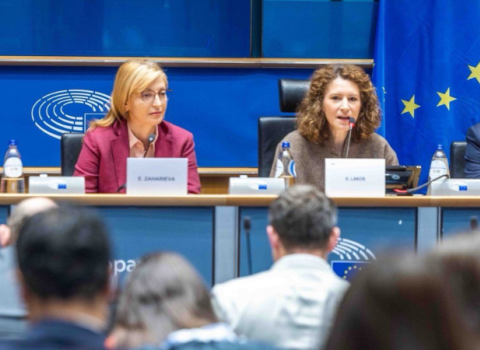European Court of Auditors says despite good design, moves to reduce the east-west research and innovation gap in Horizon 2020 cannot make up for a lack of reforms and investment in lagging member states

EU efforts to reduce the east-west gap in research and innovation should be backed by investment and reforms in member states, the EU auditor says in a report reviewing funding schemes set up by the European Commission to help bridge the divide.
Countries that joined the EU after 2004 have relatively under-developed research and innovation systems, score lower on the EU’s R&I league, and get fewer EU grants compared to countries in western Europe with long-established traditions in investing in research.
In a bid to change this, the EU drew up a plan to widen participation in the Horizon 2020 framework programme. However, the auditors say these measures can only nudge countries in the right direction - and on their own cannot trigger the changes needed to improve national research and innovation systems.
Ivana Maletić, the European Court of Auditors member overseeing the report, said the widening programme in Horizon 2020 is not a “miracle pill” even though it does help underperforming countries catch up. “To break the vicious circle, the member states must play their full part,” Maletić said.
As the auditors note, national reforms and investment levels in research and innovation are a key determinant of a country’s performance in EU funding programmes. Last year, EU member states agreed to raise public and private investments in R&D to 3% of GDP, but the pact is not binding and very few countries have reached the target so far.
In 2020, the average investment in R&I in the EU was 2.3 % of GDP, while in the group of 15 widening countries only Slovenia and Czechia invested more than 2%.
The auditors, said the widening measures under Horizon 2020 correctly addressed the issues that underpin the research and innovation gap, but projects were not evenly distributed. Four countries absorbed 60% of all funds.
In the new programme that started in 2021, the EU more than tripled the budget for widening.
The report analysed the Teaming and ERA Chairs schemes in the widening programme and found beneficiaries had only limited power to exploit their research results. However, the analysis did find the projects show promising initial results, such as boosting the number of scientific publications, increasing networking opportunities and facilitating access to more grant funding.
One barrier to success was that some projects struggled to secure co-financing from the nationally-managed EU structural and cohesion funds, because of clashes in when funds had to be spent and confusing regulations. Maletić said member states must show a stronger commitment to delivering complementary funding needed in widening projects.
According to Maletić, member states with limited research and innovation capacity are struggling to absorb all the funding that is available, including from the widening programme, but also from the European fund for strategic investments and the EU’s pandemic recovery fund. Widening projects can help countries to better absorb those funds, but “research capacity cannot increase overnight,” said Maletić.
The court is preparing a follow-up audit to assess the full impact of the widening projects, most of which are still ongoing. Maletić said the court will look at the effectiveness of the widening programme after 2025, when most projects launched under Horizon 2020 will be completed.
The report also found that not all countries made use of the Commission’s policy support facility, a series of recommendations to help member states reform their research systems. It is up to national governments to take forward the Commission’s recommendations, which are not mandatory but have been included in the European semester, the annual coordination report on economic and fiscal policies.





 A unique international forum for public research organisations and companies to connect their external engagement with strategic interests around their R&D system.
A unique international forum for public research organisations and companies to connect their external engagement with strategic interests around their R&D system.